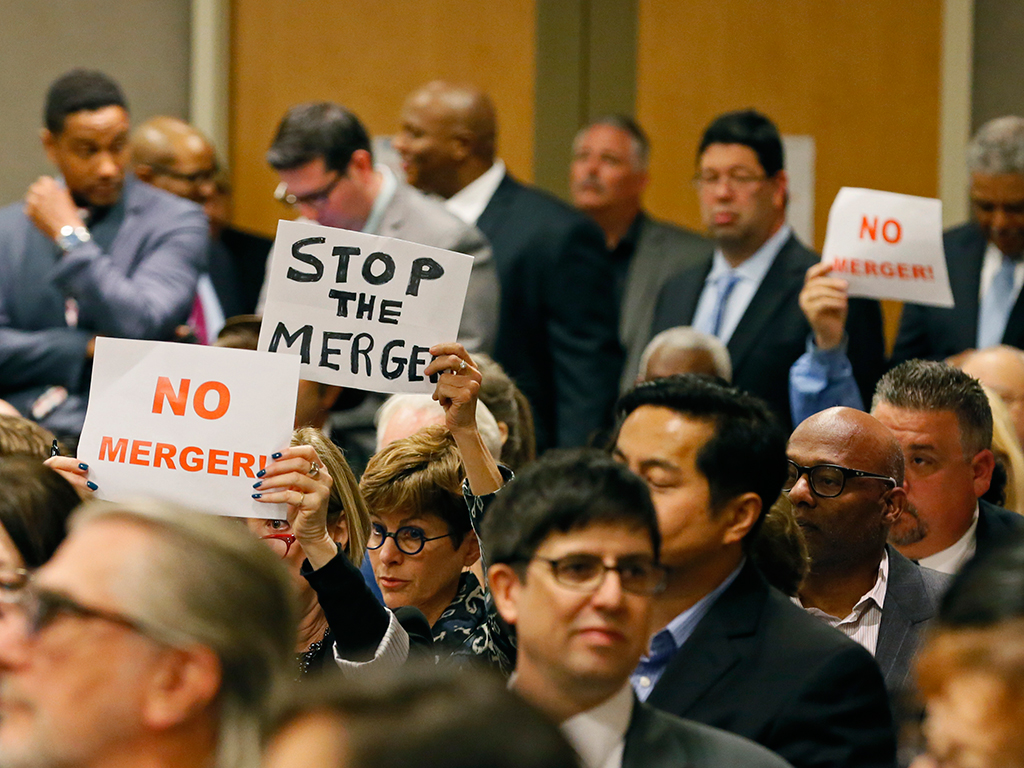Comcast-Time Warner Cable merger threatened by FCC
FCC voices concerns over the merger of the two biggest cable providers in the US

Protestors gather to reject the proposed Comcast-Time Warner Cable merger. They are concerned about the two companies monopolising the cable market
Comcast’s plans to purchase Time Warner Cable for $45bn have prompted the US Federal Communications Commission to recommend an administrative hearing. The FCC’s move indicates that the union of the two cable giants would not be in public interests.
Following the recommendation, the decision whether to allow the acquisition to proceed will be voted upon by five of the FCC’s commissioners. The process could be lengthy, which in itself could result in the termination of the deal.
TWC has started making preparations in the event that the deal falls apart
Comcast hopes that merging with TWC will enable it to experience growth in the cable market, which has been slowing as more consumers switch to subscription-based or pay television. The union of the two firms would give the entity control of around 57 percent of the broadband market and a 30 percent segment for pay television.
Numerous media companies, including 21st Century Fox and Walt Disney, have raised their concerns against the merger, according to reports. While Discovery Communications and Netflix have openly lobbied against the influence that ‘Comcast TWC’ would have in the market.
“Giving so much control over our communications system to one company, especially one with a track record of spiralling prices, terrible customer service and blocking internet content, would be a mistake,” Matt Wood, policy director of the NGO, Free Press, told the Financial Times.
According to The Wall Street Journal’s sources, TWC has started making preparations in the event that the deal falls apart. Given that it is in a better position than it was when negotiations first began as a result of improved management, industry experts believe that TWC’s value has increased and so it may seek to make its own acquisition.













